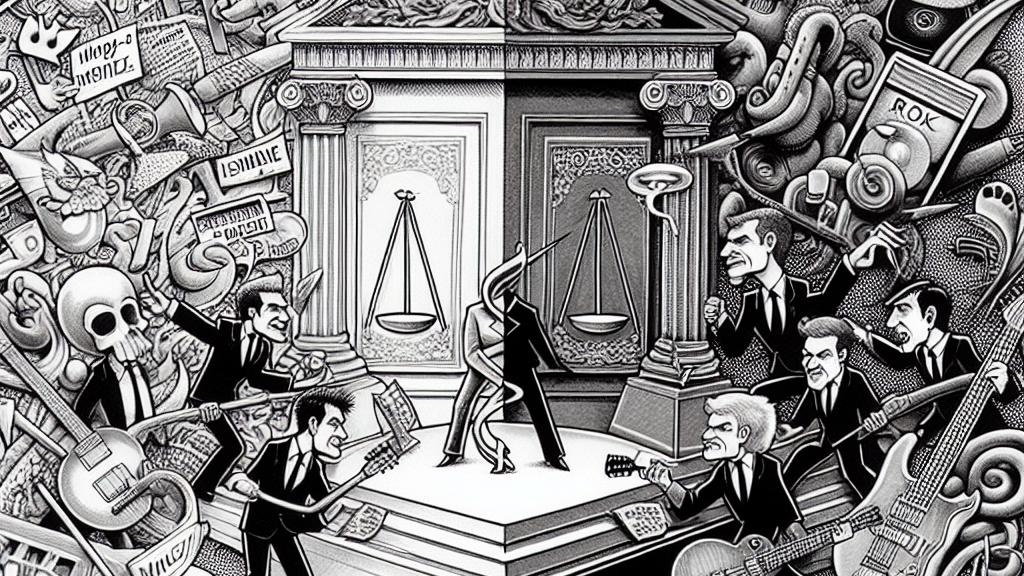Understanding the Trademark Dispute Between a French Fashion Magazine and a Japanese Rock Band
Overview
- A dramatic legal battle unfolded when the French fashion magazine ELLE took legal action against the Japanese rock band ELLEGARDEN over trademark rights.
- The core issue revolved around the use of 'ELLE' in the band's name, raising questions about corporate power versus creative freedom.
- In a landmark decision, the Japanese court sided with ELLEGARDEN, reinforcing the significance of artistic expression and the fair use of trademarks.

The Unexpected Legal Battle
Picture this: a thrilling legal battle sparks between ELLE, a prestigious French fashion magazine, and ELLEGARDEN, a beloved Japanese rock band. What initially seemed like a run-of-the-mill lawsuit quickly transformed into a captivating saga about artistic rights. The magazine accused the band of infringing on its trademark by using 'ELLE' in their name, which created an intriguing juxtaposition of very different worlds. After all, one embodies the elegance of fashion while the other channels the raw energy of punk rock. One might even chuckle at the notion that fans would confuse these distinct entities! Moreover, since 'ELLE' translates to 'she' in French—a term used in countless settings—can any one entity lay claim to it? This legal tussle isn’t just about names but rather the very essence of ownership in the artistic world.
Background of the Dispute
Let’s rewind a bit to understand how this dramatic dispute began. It all kicked off during the early days of ELLEGARDEN when they dropped an album showcasing their logo with 'ELLE' prominently displayed. This caught the eyes of Hachette Filipacchi Media, the publisher behind ELLE, leading them to fire off a cease-and-desist letter to the band. In a surprising twist, the band's management initially complied, resulting in a logo redesign that attempted to avoid conflict. Yet, this only emboldened the magazine's aggressive stance, prompting them to issue a barrage of demands targeting each aspect of the band’s merchandise—from T-shirts to vinyl records. Imagine being caught in a web spun by a corporate giant! Eventually, feeling the pressure mount, ELLEGARDEN stood firm, setting the stage for a courtroom showdown as they refused to back down from the unjust claims.
Court's Decision and Implications
The climax of this riveting legal drama came when the Japanese Intellectual Property High Court rendered its decision. To the collective relief of fans around the globe, the court decisively ruled in favor of ELLEGARDEN, delivering a robust victory. The judges pointed out the stark contrasts between the two brands. ELLEGARDEN's merchandise, adorned with punk-inspired designs of skulls and vibrant graphics, was unlikely to ever be confused with the sophisticated aura of ELLE. This ruling was much more than just a win; it became a powerful affirmation of creative freedom in the face of corporate overreach. The court eloquently highlighted that while trademark protection is crucial, it must not extinguish the unique voices that enrich our culture. This case stands as a clarion call, celebrating the beauty of artistic expression and showcasing the importance of allowing artists the freedom to cultivate their identities without fear of unwarranted legal challenges. ELLEGARDEN's victory not only preserved their name but also paved the way for other artists to express themselves freely in their own expressive realms.

Loading...